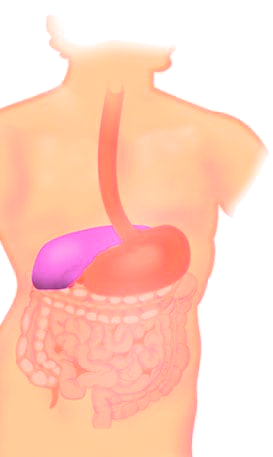Flexible sigmoidoscopy is a procedure that enables your physician to examine the lining of the rectum and a portion of the colon (large bowel) by inserting a flexible tube that is about the thickness of your finger into the anus and advancing it slowly into the rectum and lower part of the colon.
Unless otherwise necessary, your procedure will be performed in our Endoscopy Suite.
he rectum and lower colon must be completely empty of waste material for the procedure to be accurate and complete. To prepare for your procedure:
- Drink a 10 ounce bottle of Magnesium Citrate at 7 pm the evening before your procedure.
- Eat a light breakfast, then only clear liquids (apple juice, broth, Sprite, 7-Up, white grape juice) until your procedure is completed.
- Take 2 Fleet’s enemas 1-2 hours before coming to the office. Take 1 at a time, holding each for 5 minutes.
All medications can be continued as usual. You should bring a list of all current medications as well as any allergies to medications to your appointment. You may take your usual medications the day of your examination.
Flexible sigmoidoscopy is usually well tolerated and rarely causes much pain. There is often a feeling of pressure, bloating, or cramping at various times during the procedure. You will be lying on your side while the sigmoidoscope is advanced through the rectum and colon. As the instrument is withdrawn, the lining of the intestine is carefully examined. The procedure usually takes anywhere from 5 to 15 minutes.
If the doctor sees an area that needs evaluation in greater detail, a biopsy (sample of the colon lining) may be obtained and submitted to a laboratory for greater analysis. If polyps (growths from the lining of the colon which vary in size) are found, they can be biopsied, but usually are not removed at the time of the sigmoidoscopy. Polyps are of varying types; certain benign polyps, known as “adenomas” are potentially precancerous. Certain other polyps (“hyperplastic” by biopsy analysis) may not require removal. Your doctor will likely request that you have a colonoscopy (a complete examination of the colon) to remove any large polyp that is found, or any small polyp that is adenomatous after biopsy analysis.
Flexible sigmoidoscopy and biopsy are generally safe when performed by physicians who have been specially trained and are experienced in these endoscopic procedures. Possible complications include a perforation ( tear through the bowel wall) and bleeding from the site of a biopsy.
Although complications after flexible sigmoidoscopy are rare, it is important for you to recognize early signs of any possible complication. Contact your physician if you notice any of the following symptoms: severe abdominal pain, fevers and chills, or rectal bleeding of more than one-half cup. It is important to note that rectal bleeding can occur even several days after a biopsy.
If you have any questions we have not answered please write them down and discuss them with your physician or nurse before the flexible sigmoidoscopy, or call (423) 267-5677 between 9:00 am and 5:00 pm Monday through Friday.




